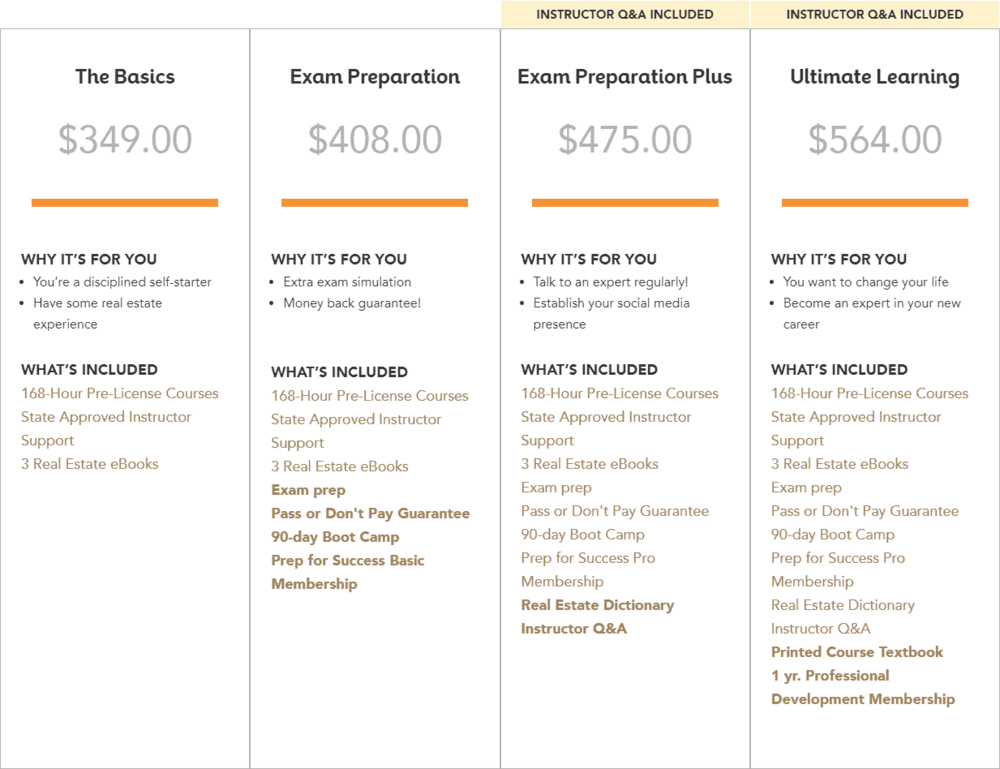
What's the difference in a real-estate agent and a realtor? The two have very different functions, so here is a look at some of the main differences between them. If you are looking to purchase or sell a property, an agent or broker may be the right choice. Both are valuable, so the choice is yours. To learn more, read our agent vs broker comparison article.
Real estate agent
While there are some differences among brokers and agents they are equally important to a successful home purchase experience. While brokers manage the legalities of buying a home, buyers' agents help to find properties and negotiate offers. Brokers help in paperwork and hold escrow. The buyer's representative is responsible for finding the perfect home and helping buyers navigate the process. Agents are often referred to as brokers in some jurisdictions.

Realtors are licensed real estate professionals, while agents are licensed salespeople. Real estate licenses are required for both types. They must follow strict ethical codes. For example, real estate agents are required to be members of the National Association of Realtors (NAR) and abide by the code of ethics. A broker is a licensed real-estate agent. As a result, the two roles are quite different.
Agent for the buyer
The choice between a buyer's agent and a broker should be based on your personal situation. The former is legally required to represent the buyer's best interests. The buyer's representative, however, is required to represent the buyer's best interests. Buyer's agents can often be more helpful to buyers than their counterparts who have the benefit from an outsider’s viewpoint. Buyers should understand the advantages and disadvantages of working with an agent.
A buyer's representative can offer a variety services such as market analysis, evaluating comparable sales and determining an offer value based upon the property's features. He or she may also assist with preparing a co-op board package or handling other contract terms. A buyer's agency can also help with dealing with the unexpected speed bumps in a transaction. A buyer's agent can help avoid these speed bumps by making sure you don’t make costly errors that could result in a loss of thousands.
Insurance broker
It can be difficult to decide between an agent and an insurance broker when you are looking for insurance. An insurance agent must be licensed by the state. Agents are often tied to one or two insurance companies. Brokers, however, are able to shop around and compare all options for you, saving you significant time. Here are some reasons you should choose an insurer broker.

The biggest difference between an independent insurance agent and an agency is the representation. An insurance agent represents the insurer, while a broker represents the insurance buyer. Independent or captive, a broker can represent any number insurance companies. A broker can represent multiple companies and have a greater network of contacts. However, insurance agents can represent one particular insurer, while a broker represents many. This is a significant difference.
FAQ
What is a "reverse mortgage"?
A reverse mortgage is a way to borrow money from your home without having to put any equity into the property. You can draw money from your home equity, while you live in the property. There are two types of reverse mortgages: the government-insured FHA and the conventional. You must repay the amount borrowed and pay an origination fee for a conventional reverse loan. FHA insurance covers repayments.
Is it possible to get a second mortgage?
Yes, but it's advisable to consult a professional when deciding whether or not to obtain one. A second mortgage is used to consolidate or fund home improvements.
What flood insurance do I need?
Flood Insurance protects from flood-related damage. Flood insurance protects your possessions and your mortgage payments. Find out more information on flood insurance.
How can I repair my roof?
Roofs can become leaky due to wear and tear, weather conditions, or improper maintenance. Roofers can assist with minor repairs or replacements. Contact us for further information.
Can I buy a house without having a down payment?
Yes! There are many programs that can help people who don’t have a lot of money to purchase a property. These programs include government-backed mortgages (FHA), VA loans and USDA loans. Check out our website for additional information.
Statistics
- Over the past year, mortgage rates have hovered between 3.9 and 4.5 percent—a less significant increase. (fortunebuilders.com)
- The FHA sets its desirable debt-to-income ratio at 43%. (fortunebuilders.com)
- This seems to be a more popular trend as the U.S. Census Bureau reports the homeownership rate was around 65% last year. (fortunebuilders.com)
- 10 years ago, homeownership was nearly 70%. (fortunebuilders.com)
- Private mortgage insurance may be required for conventional loans when the borrower puts less than 20% down.4 FHA loans are mortgage loans issued by private lenders and backed by the federal government. (investopedia.com)
External Links
How To
How do you find an apartment?
The first step in moving to a new location is to find an apartment. This takes planning and research. This involves researching and planning for the best neighborhood. There are many ways to do this, but some are easier than others. Before renting an apartment, it is important to consider the following.
-
Data can be collected offline or online for research into neighborhoods. Websites such as Yelp. Zillow. Trulia.com and Realtor.com are some examples of online resources. Local newspapers, landlords or friends of neighbors are some other offline sources.
-
Read reviews of the area you want to live in. Review sites like Yelp, TripAdvisor, and Amazon have detailed reviews of apartments and houses. You may also read local newspaper articles and check out your local library.
-
For more information, make phone calls and speak with people who have lived in the area. Ask them about their experiences with the area. Ask for their recommendations for places to live.
-
Check out the rent prices for the areas that interest you. Renting somewhere less expensive is a good option if you expect to spend most of your money eating out. On the other hand, if you plan on spending a lot of money on entertainment, consider living in a more expensive location.
-
Find out information about the apartment block you would like to move into. Is it large? What is the cost of it? Is it pet friendly? What amenities does it have? Can you park near it or do you need to have parking? Are there any rules for tenants?